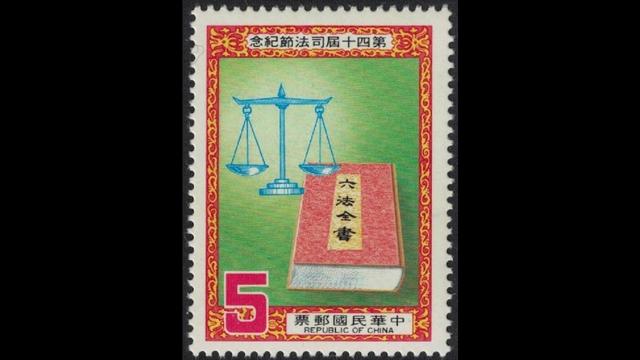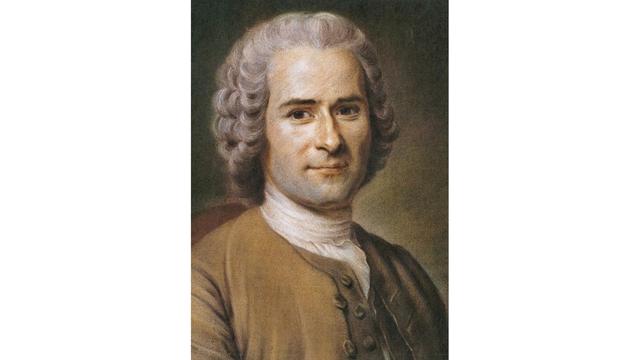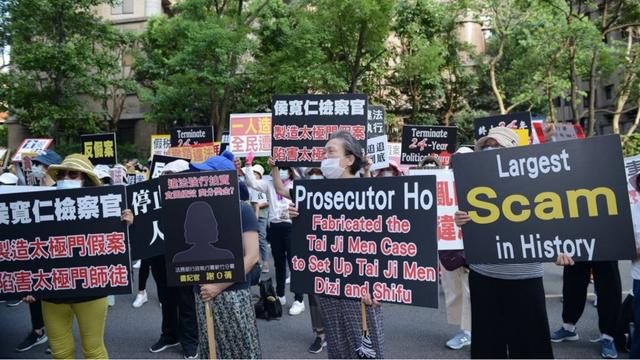There is no freedom without justice and no justice without freedom. This is also true for the Tai Ji Men case: and love is needed, too.
by Alessandro Amicarelli*
*Conclusions of the webinar “A Real, Independent Justice for Tai Ji Men” co-organized by CESNUR and Human Rights Without Frontiers on January 11, 2023, Taiwan’s Judicial Day.

Judicial Day is a day to celebrate justice, something which Taiwan as a country has been struggling for, for a long time. Tai Ji Men is fighting a long-term battle for justice, for freedom, and for peace—for every Taiwanese and for Taiwan as a whole.
Albert Einstein said that “striving for social justice is the most valuable thing to do in life.” This is what Tai Ji Men is doing and promoting, with the constant support and inspiration from its Shifu, Dr. Hong Tao-Tze. The realisation of justice for Tai Ji Men can certainly be a means for Taiwan to improve and step forward towards a full democratic system.
I would like to quote some words on law and conscience by Catholic scholar and Dominican priest Hilary J. Carpenter, published on January 1937 in the British Catholic magazine “Blackfriars” (vol. 18, no. 22, 19–28). Under the title “Law and Conscience,” Carpenter wrote that, “In the ideal state of things conscience and law are coincident. It is true that one is subjective and the other is objective, but there is an essential interdependence between them. (…) As a result of subjectivism in Religion and in Philosophy, the link between them has been broken; conscience has become almost entirely subjective in the narrow sense of the word, (and the) law almost entirely objective and formalistic. The former (conscience) has thus tended to have less and less moral force, while the latter (the law) has become more and more atrophied (meaning disconnected from the conscience). Without one or the other, a man finds himself in a tragic state.”
Indeed, the world is in a tragic state presently. The Tai Ji Men case is also in a tragic state. The testimonies of the dizi show us something we will never get used to. They continue to give us a clear picture of what has happened and is still happening in Taiwan in relation to Tai Ji Men. It is something we cannot accept.
Swiss philosopher Jean- Jacques Rousseau said liberty is a requirement for justice, and German philosopher Immanuel Kant said justice is a requirement for liberty. Indeed, justice and freedom are both essential and vital principles. There can be no freedom without justice, and vice versa.

As law and conscience are interdependent, and as justice and liberty are interdependent, likewise love and peace are also interdependent. There can be no peace in Taiwan, or elsewhere, if there is no love; and love is the key for the establishment of peace in Taiwan and in the world.
Love is not a theoretical principle. Love, in fact, is the opposite of hatred, the war being the personification of hatred. Some corrupted officials in Taiwan started a war against Tai Ji Men in 1996. This war against Tai Ji Men is the denial or the absence of love. It was a war that denied conscience and suppressed liberty and justice for Tai Ji Men and for Taiwan.
The suppressive behaviour of a public prosecutor, who ridiculously accused Tai Ji Men of raising goblins and made up a number of fake allegations, was the self-manifested proof that public officials, or at least some of them, had looked into their private interest only, instead of looking at the public interest.
The case of Tai Ji Men has shown that some officials in Taiwan believe they stand above the law instead of being servants of the law. This has encouraged corruption and the denial of justice and peace.
Tai Ji Men dizi have fought a 27-year battle to re-establish justice in Taiwan—for themselves and for all Taiwanese.

As friends of Taiwan and of Tai Ji Men, we stand for abolishing the bonus system that fuels corruption among tax bureaucrats. We ask Taiwan to eradicate corruption and establish a legal and tax system sustained by respect for liberty and justice and based on the sacred principles of conscience and morality, principles that are well present in the Asian cultures.
Peace in the world can be a reality if we all do our best for it and work together to that end. Let me quote a famous song by Michael Jackson: “Heal the world, make it a better place for you and for me and the entire human race.”
We will keep supporting Tai Ji Men’s Shifu and dizi until justice prevails for them, for Taiwan, and for the world. Let’s heal the world.
Source: Bitter Winter

